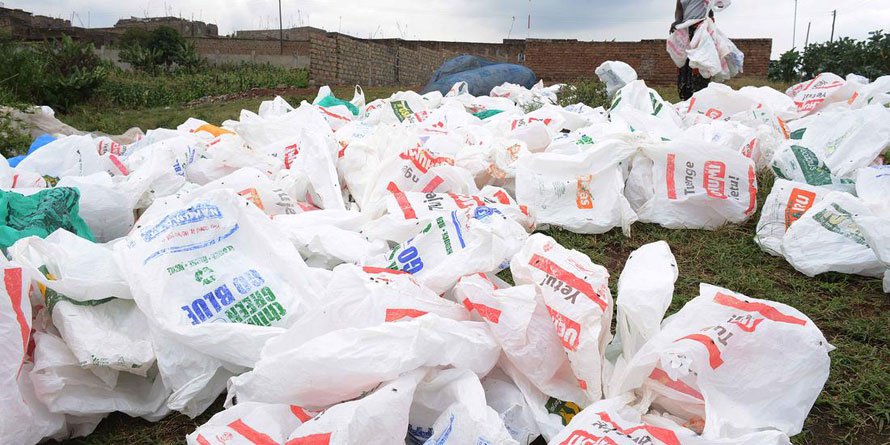All passengers boarding-off at Entebbe International Airport are required to present themselves and their baggage in a baggage room for examination by the customs officials as provided for under Section 44 (2) of the East Africa Community Customs Management Act (EACCMA) of 2004 as amended.
As noted in the URA Passenger Clearance at Entebbe Airport guidelines, the Customs officers in this Passenger Baggage Examination room will physically examine the content of the passenger baggage in the presence and with the help of the passenger.
The modern NII Scanner technology always provides prior information with customs official in determining which passenger baggage should be subjected to physical examination.
The physical examination usually focuses on 4 major aspects; concealed goods, dutiable goods, prohibited items and restricted items.
The findings of physical examination determine Customs’ next course of action that usually takes the form of issuing a tax assessment if the goods are dutiable, seizing any prohibited items found and charging the passenger as per the law.
Passenger baggage dutiable items are new goods for personal use that have exceeded allowable customs value. The allowable customs value applies to new goods accompanying a passenger not exceeding the value of US $500.
These do not attract taxes except in exceptional circumstances where such goods are not for the personal use of the passenger but rather for distribution to other persons.
The typical example is goods for donations. The passenger should have an authentic receipt confirming the value that corresponds with the items.
The arrivals entry at Entebbe Airport
If the passenger does not have the authentic receipt for the new items in their possession, customs is mandated to determine value of those goods using alternative approaches as provided for under the General Agreement on Tariff and Trade (GATT) domesticated under section 122 of EACCMA, 2004 as amended in schedule 4. There are up to 6 approaches customs uses to legally determine the value of the items. To avoid any delays arising out of this process, passengers are encouraged to present authentic receipts.
Exceptional circumstances here refer to cases where a passenger presents baggage that is within the limit of US $500 value but can be seen to possess commercial goods. Case in point could be baggage of 100 t-shirts bought at US $5 each. While these will not exceed the allowable customs value, they are evidently commercial goods that attract taxes.
The Customs officers have guiding principles in discharge of their discretional powers.
The passenger still has a right to challenge the decision of a customs officer in a process called an appeal.
If the passenger chooses to appeal the decision of the customs officer, he or she does so to the immediate supervisor of that officer and should do so in writing specifying grounds for the appeal. The appeal can go up to the commissioner’s level.
As a trade facilitative arrangement, Customs devised measures that quickly assess taxes for the passenger’s baggage that exceeds the allowable customs value but does not exceed the value of US $2,000. The simplified trade regime applied does not require use of a Tax Identification number of the passenger nor does it require use of licensed customs clearing broker/agent.
The customs official at the airport will quickly generate assessment for the passenger electronically with a tax Payment Reference Number (PRN). The taxes are already embedded into the customs clearance system as per the tax policies that the government has passed into law. The Customs official will only input the goods clarification code and the Value of the goods and the system automatically computes the taxes payable.
For all imports into Uganda there are generally four types of taxes applicable i.e. Import duty which ranges from 0% to 35% depending on the nature of goods, VAT at 18%, Withholding Tax at 6% (this is claimable if the taxpayer files income tax returns) and infrastructure levy at a rate of 1.5% of the Value of the items. The passenger uses the electronically generated PRN to pay taxes either through bank, or other payment platforms such as VISA, PayWay, Mobile money, to mention but a few.
The client then presents the payment receipt to the customs official who verifies authenticity of the payment receipt before they release/exit the client’s baggage. These payment platforms are interfaced with the customs systems and once the payment has been made by the client, the customs system automatically recognises the payment.
In case the passenger cannot instantly pay the assessed taxes, their baggage is kept in the gazetted baggage holding room for a maximum of 7 working days. If the baggage is not claimed after seven working days, rent will be applicable at rate of US $0.3 per Cubic Meter per day for the next 30 days after which customs may dispose of those goods in a manner the commissioner will deem fit. Perishables or animals may be disposed of or sold without notice irrespective of 7 days-allowance.
If you fail to redeem this cargo in the 30-days period, a public notice is issued to auction these goods. However, a taxpayer has an opportunity to redeem their goods from the auction at a cost of 1% of the value of the goods. After redeeming the goods, the taxpayer is issued with the rent costs, import duty due and applicable taxes.
Upon payment of the fees and taxes due, a passenger is issued an exit order which they present when collecting their cargo. Goods that have paid taxes must exit the customs warehouse within 14 days from the issuance of the exit order.
If they do not leave, they are either auctioned at first come first serve basis and/or the client may be penalised for this delay as per section 60 of EACCMA, 2004 as amended.
Passengers are advised to always ensure they only carry baggage they own and never help deliver strange goods or goods from strangers. At all times in the customs clearance of the passenger, all baggage checked in with the airline in the name of the passenger are deemed to belong to that passenger. If the goods are found to be prohibited, the passenger will be charged even if someone else gave them those goods. Often times smugglers of drugs have used other people to check in and smuggle prohibited items. As a passenger, do not accept to check in items from strangers, it could easily land you into avoidable trouble.




